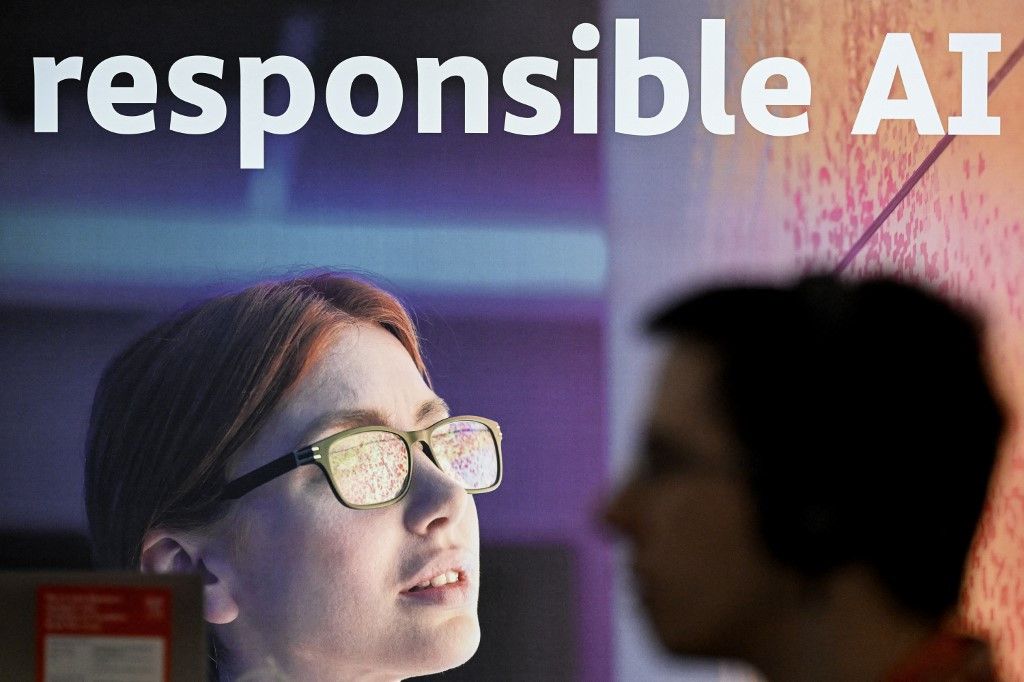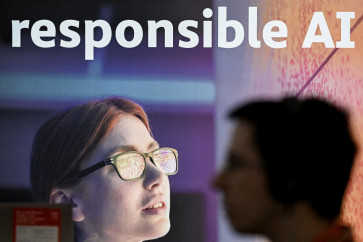Popular Reads
Top Results
Can't find what you're looking for?
View all search resultsPopular Reads
Top Results
Can't find what you're looking for?
View all search resultsClosing the AI skills gap in 2025
Capitalizing on the opportunities that AI presents will require updated approaches to education and training.
Change text size
Gift Premium Articles
to Anyone
W
ith artificial intelligence poised to reshape industries worldwide, a paradox is emerging. Despite growing demand for people with the knowledge to leverage the technology’s potential, AI-related skills remain in short supply.
The scarcity of AI-related skills, from proficiency in machine learning, prompt engineering and data science, to an understanding of AI’s ethical implications, is becoming a major obstacle to deploying the technology effectively. In one recent report, 47 percent of executives say their employees lack the necessary skills. This will affect companies’ ability to move AI projects from conception to implementation. A 2023 report from the World Economic Forum finds that “six in 10 workers will require training before 2027, but only half of workers are seen to have access to adequate training opportunities today.”
This skills gap bodes ill not only for individual career growth, but also for economic growth more broadly. Capitalizing on the opportunities that AI presents will require updated approaches to education and training. In the coming year, educational and vocational institutions will likely place a much greater emphasis on teaching AI ethics skills, offer flexible lifelong learning and infuse AI into their offerings to be more competitive.
AI ethics skills will become a core concern, and for good reason. In the space of just a few years, generative AI has become available to anyone with a computer and an internet connection. For employers and their information technology (IT) departments, this raises the problem of “shadow AI”, or unsanctioned use of generative AI by employees, which could expose companies to a wide range of security, compliance and reputational risks. In addition, the workforce will need AI ethics skills to manage new AI agents: Tools that can automate complex tasks that would otherwise require human resources.
Shadow and agentic AI both demand new guardrails to help users protect AI applications based on responsible AI practices. To this end, education providers will begin to emphasize training on the fundamentals of AI explainability, fairness, robustness, transparency and privacy. Without a basic understanding of how AI models generate their output, for example, those responsible for protecting data or controlling autonomous systems will be ill-equipped for the task.
With AI and other new technologies evolving rapidly, lifelong learning will become the new normal. The process can be divided into developing skills that meet immediate needs, anticipating future needs and furnishing always-in-demand expertise.
Many traditional roles within an organization will soon change. For example, some employees who currently work independently (who don’t manage other people) may join new types of teams in which humans manage AI agents. And to prepare them for this fundamental change, demand for online courses and digital credentials in AI-related fields like natural language processing and machine learning will likely increase. Moreover, the future use of quantum computing will continue to drive the need for new skills. And the steady rise in the number and variety of cyberattacks, such as “harvest now and decrypt later” (HNDL) hacks, underscores the importance of up-to-date cybersecurity skills.



















